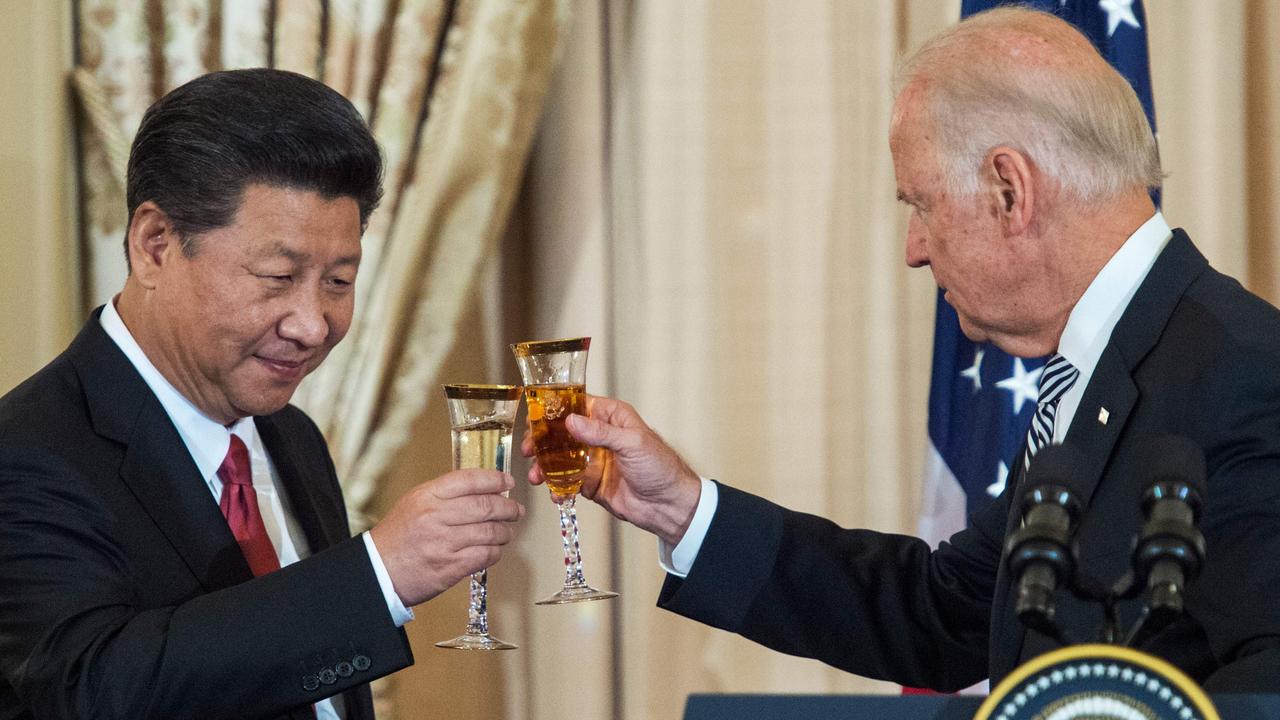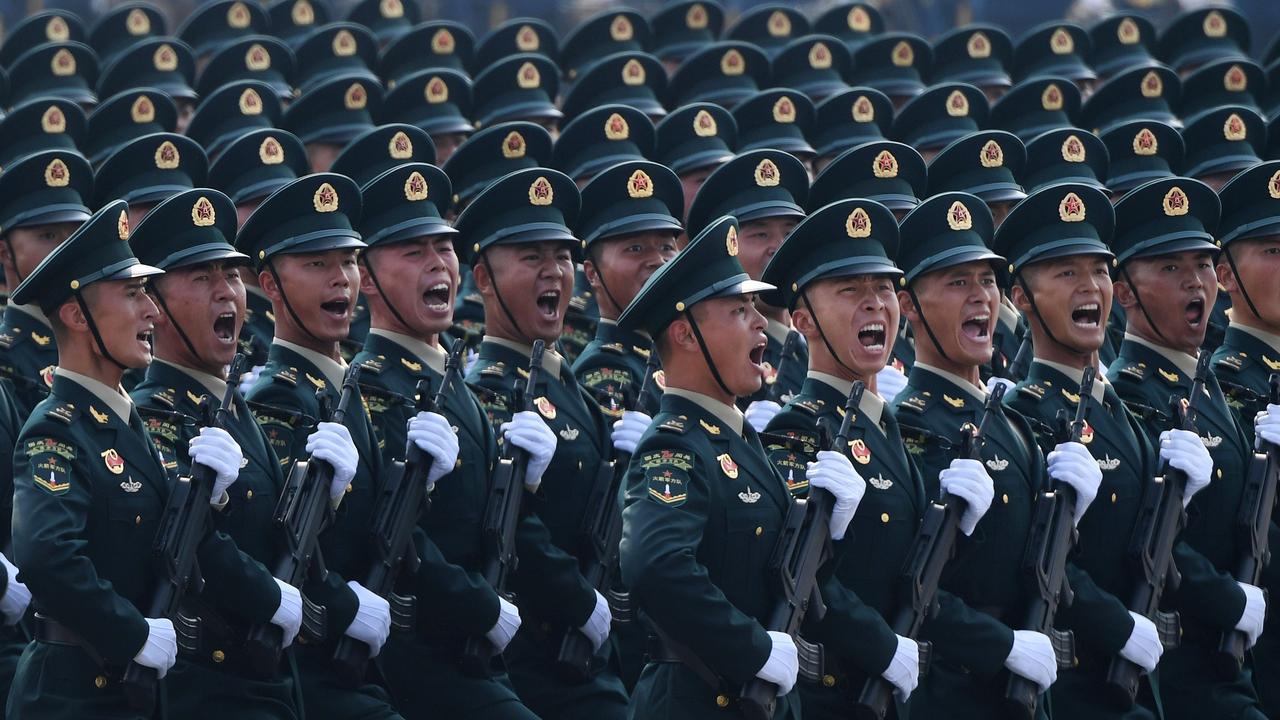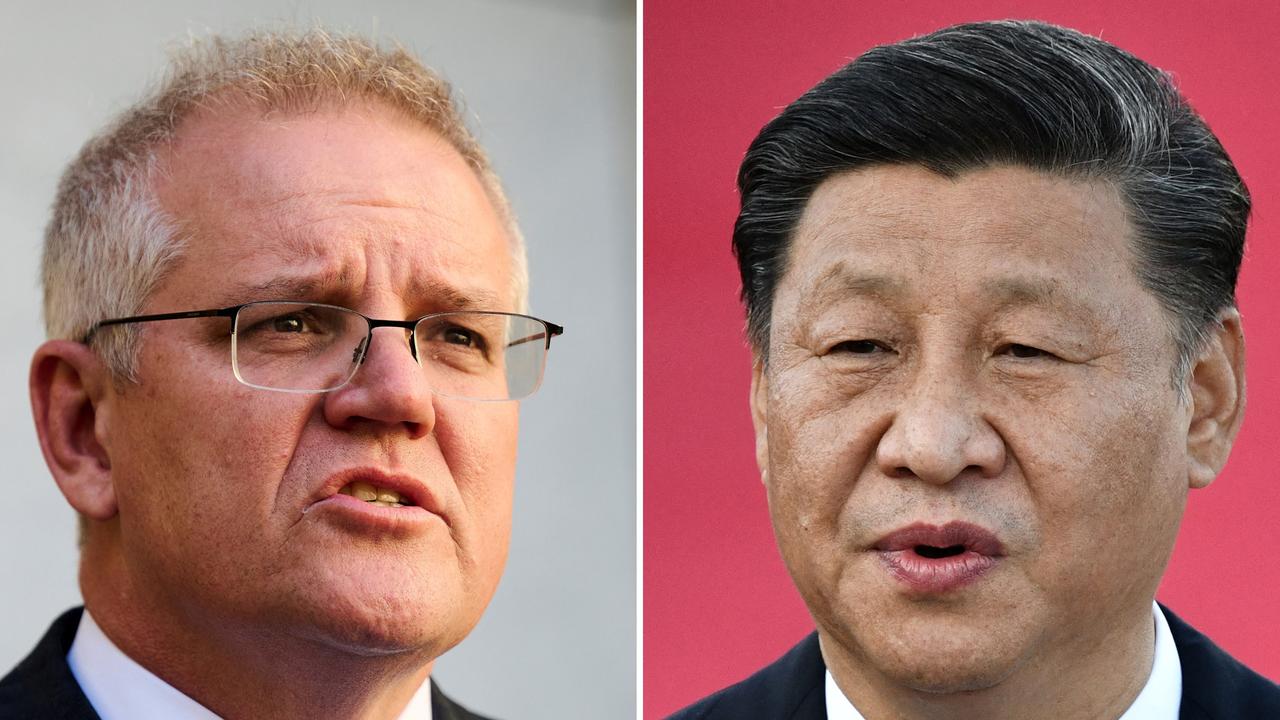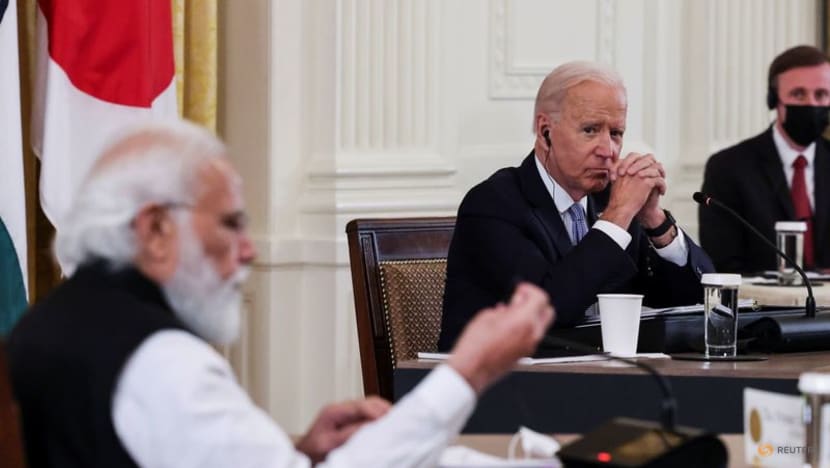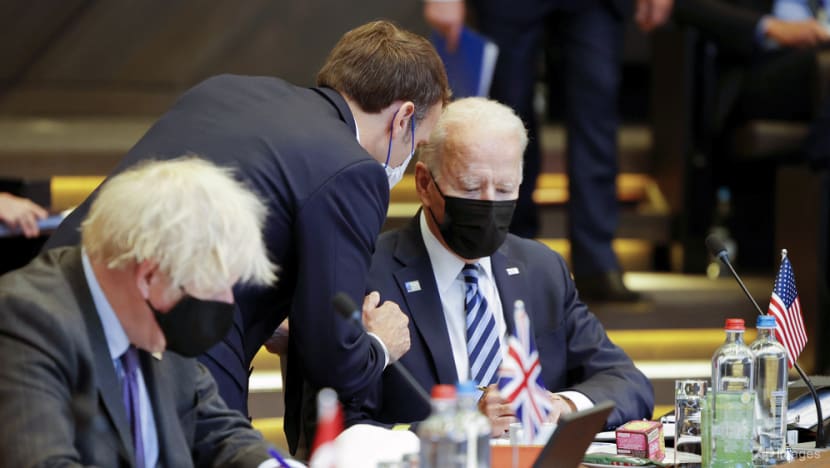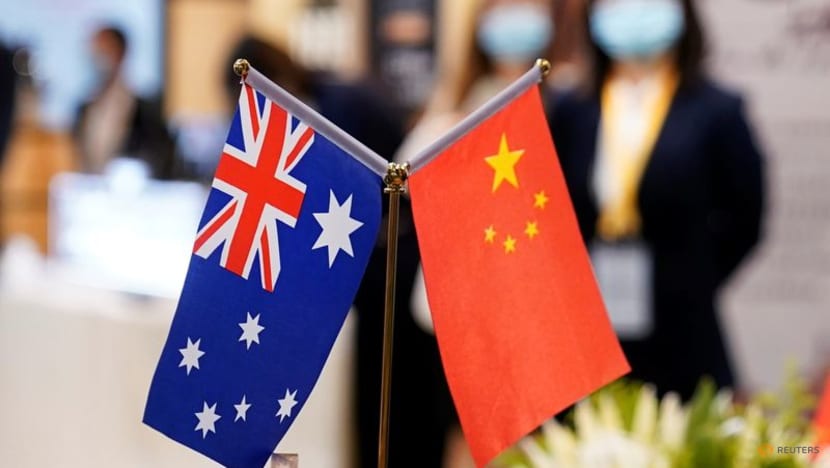Countries unite with Australia against China
'Australia is leading the world in the pushback against Chinese hegemony'
Broadcaster Michael McLaren says "in many respects,…
The mood at the United Nations this week was dire. World leaders warned the world was in trouble.
Racism. Climate change. Nationalism. Cultural clashes. Border disputes. Resource depletion.
“The future is raising its voice at us,” Costa Rican President Carlos Alvarado Quesada declared.
“The world has entered a period of new turbulence and transformation,” added
China’s chairman-for-life, Xi Jinping.
Xi also asserted an often-made claim: That China has never – and will never – invade or bully others.
Chinese President Xi Jinping maintained China isn’t a bully. PIC: Reuters
Tibet may disagree after its annexation in 1950. Vietnam may disagree as it repulsed a Chinese invasion in 1979. India may disagree after a series of clashes along its Himalayan border over the decades.
Taiwan, Japan, Malaysia, Indonesia, Nepal, Brunei – and Australia – may have something to say about being bullied.
The list of aggrieved nations is growing. Many feel compelled to react. Now Beijing is experiencing some
unwanted pushback.
One commentator has said Xi’s bet is that China can become the globe’s major superpower. The problem for Xi is that pushes many other nations - that might have been fine happily slumbering - towards alliances, official or otherwise, to be a counterweight against all that might.
But what’s the best way to assert independence without beating the drums of war?
“That debate has to be about how we best secure the nation in response to growing capabilities of rivals, and how best to do so while keeping our options open,” Australian Institute of International Affairs executive director Dr Bryce Wakefield says. “When it comes to national security, I don’t think we can bet the farm on the principle of not offending people who are led to be offended.”
Game of thrones
“One country’s success does not have to mean another country’s failure,” Xi told the UN General Assembly’s leaders’ meeting in New York. “The world is big enough to accommodate common development and progress of all countries.”
But Beijing has a growing reputation for doing the opposite to what it preaches.
Ideals of multilateralism and international co-operation are quickly cast aside when it comes to the South and East China Seas, Taiwan and the Himalayas.
“Recent developments in the global situation show once again that military intervention from the outside and so-called democratic transformation entail nothing but harm,” Xi declared.
It was a criticism of Washington’s failed policies in Afghanistan, Iraq, Syria and elsewhere.
But he made it even as his own combat aircraft circled Taiwan, submarines probed Japan and troops massed on India’s borders.
Then US Vice President Joe Biden and Chinese President Xi in less turbulent times in 2015. Picture: Paul J. RICHARDS / AFP.
US President Jo Biden had an equally conciliatory message.
“We are not seeking a new Cold War or a world divided into rigid blocs,” he said. “The United States is ready to work with any nation that steps up and pursues peaceful resolution to shared challenges even if we have intense disagreements in other areas.”
But he spoke as one of his aircraft carrier battle groups was making its presence felt in the South China Sea, and a destroyer pushed through sensitive waters between China and Taiwan.
And, like China, the US track record for invading and bullying other nations isn’t remotely pristine.
Target market?
“It’s not that China doesn’t demonise “the foreign” in order to distract from internal problems or the legitimacy of the Communist Party,” Dr Wakefield says. “It does so all the time, and things like patriotic education, the effort to drill the century of humiliation into the minds of the populace, and so forth, are clearly designed to shore up the legitimacy of the regime at the expense of good feelings about one’s neighbours.”
Others argue there’s an even more malign motivation behind Beijing’s behaviour.
“Chinese President Xi Jinping is making the most audacious geopolitical bet of the twenty-first century,” says president and chief executive officer of the
US think-tank Atlantic Council, Frederick Kempe.
“A head-spinning series of seemingly disparate moves over recent months add up to nothing less than a generational wager that Xi can produce the world’s dominant power … by doubling down on his state-controlled economy, party-disciplined society, nationalistic propaganda, and far-reaching global influence campaigns.”
Chinese troops marching during a military parade in Tiananmen Square in Beijing to mark the 70th anniversary of the founding of the People's Republic of China in October 2019. Picture: Greg BAKER / AFP.
Bold bet
Mr Kempe adds that President Xi’s “bold bet” may risk overplaying his hand.
“Xi, by overreaching in his controls at home, will undo just the sorts of economic and societal liberalisation China needs to succeed. At the same time, the world’s democracies, like Australia, are growing more willing to seek a common cause to address Beijing.”
Therein lies a difficult diplomatic balance, Dr Wakefield says.
“The result of referencing ‘external enemies’ to create domestic solidarity is a particularly antagonistic foreign policy. But it is not our job to cater to the nationalist sentiments of others.”
Pushback
“The relatively benign environment we’ve enjoyed for many decades in our region is behind us,” Prime Minister Scott Morrison said shortly after the nuclear submarine announcement. “We have entered a new era with challenges for Australia and our partners.”
It’s a frightening thought.
We’re not the only ones to think it.
Despite Beijing’s assertions, it’s not just the Anglosphere (US, UK, Australia) that’s uncomfortable with its behaviour.
Japan has ramped up its defiance. It has publicly and diplomatically declared that its fate is intrinsically tied to that of neighbouring Taiwan. It’s boosting defence spending and redeploying its forces to cover its contested southern islands.
Prime Minister Scott Morrison and China's President Xi Jinping. Picture: AFP.
The Philippines has been grappling with the implications of an overwhelmingly powerful neighbour and the loss of traditional fishing grounds. In the past year, it’s resolved to make the best stand it can to assert its UN-backed sovereignty over the Spratly Islands.
It’s a similar story for Vietnam. It’s begun to fire off terse diplomatic notes to the UN protesting China’s increasingly assertive behaviour in contested territory. That’s raised Beijing’s ire even further.
But much of the rest of Southeast Asia – those nations less confronted by Beijing’s boundary ambitions – have adopted a “wait and see” approach.
Troubled times
“Facing common challenges of fighting the pandemic and economic recovery, the people in the Asia-Pacific region need growth and employment, not submarines and gunpowder,” China’s Foreign Ministry spokesman Zhao Lijian declared in response to the AUKUS defence co-operation deal.
Yet it’s undertaking the worlds fastest ever military expansion and modernisation.
In just 20 years, its navy has gone from a coastal guard fleet to a blue water Pacific Ocean navy larger than that of the United States. Its combat aircraft fleet is modern and capable, including its own stealth designs. It’s a world leader in autonomous drones. It’s arbitrarily built seven artificial island fortresses to enforce its claim over the entire South China Sea …
How should middle powers, such as Australia, respond?
“What Australia should not do is engage in pointless rhetorical flourishes of our own,” says Dr Wakefield. “I’m not sure the way the government introduced the AUKUS arrangements with a big announcement that surprised the French was particularly wise, and I think it was done for domestic political purposes in Australia.”
But, “we shouldn’t be silent when another country ignores a treaty that it has signed up to – or threatens sectors of our economy with punitive trade sanctions.”
“That doesn’t give us a licence to be blunt all the time — and god knows, Australia needs to fund and use its diplomats more skilfully — but we don’t need to accept an overly assertive foreign policy because of what we think the consequences of hurting someone’s falsely stoked outrage might be.
“Under those circumstances, we have to stand firm and reiterate our principles calmly.
“Hopefully, we’ll also have a debate about what a “good outcome” in our China policy looks like and a pathway to get there, something I see very little of.”
Jamie Seidel is a freelance writer | @JamieSeidel
Read related topics:


